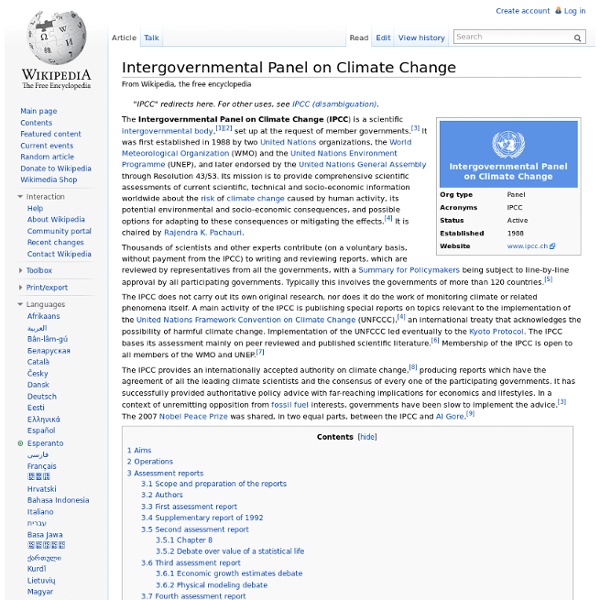Intergovernmental Panel on Climate Change

RealClimate
Gregor Louisoder Umweltstiftung: Startseite
Who We Are
CGIAR is the only worldwide partnership addressing agricultural research for development, whose work contributes to the global effort to tackle poverty, hunger and major nutrition imbalances, and environmental degradation. It is carried out by 15 Centers, that are members of the CGIAR Consortium, in close collaboration with hundreds of partners, including national and regional research institutes, civil society organizations, academia, development organizations and the private sector. The 15 Research Centers generate and disseminate knowledge, technologies, and policies for agricultural development through the CGIAR Research Programs. The CGIAR Fund provides reliable and predictable multi-year funding to enable research planning over the long term, resource allocation based on agreed priorities, and the timely and predictable disbursement of funds. The multi-donor trust fund finances research carried out by the Centers through the CGIAR Research Programs. What we do Making a difference
INSM
Cradle To Cradle Products Innovation Institute
The program guides continual improvement towards products that are: - made with materials that are safe for humans and the environment - designed so all ingredients can be reused safely by nature or industry - assembled and manufactured with renewable, non polluting energy - made in ways that protect and enrich water supplies, and - made in ways that advance social and environmental justice What makes your product "sustainable"? How do important audiences know for sure? Certified Cradle to Cradle is rigorous. The Cradle to Cradle CertifiedTM Products Program is comprehensive and rigorous. It requires a paradigm shift in thinking about how a product is designed, what it contains, how it is made, and where it goes after use. As a guidance system for product designers and manufactuers, the program leads to the creation of innovative products that redefine quality and beauty. Products are analyzed by assessors that have been accredited by the Institute.
FÖS | Forum Ökologisch-Soziale Marktwirtschaft | © 2013
Home - scp-centre.org
adelphi Homepage
Related:
Related:



